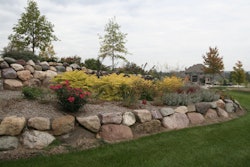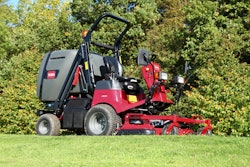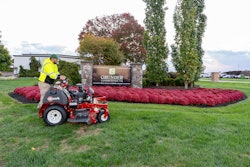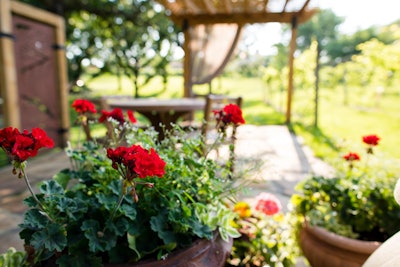 Photo: Sun Valley Landscaping/Colin Conces Photography
Photo: Sun Valley Landscaping/Colin Conces Photography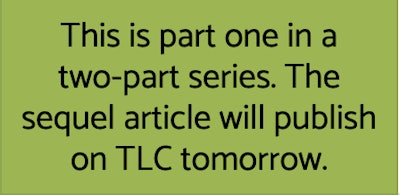
We talked to a group of landscapers on their thoughts about current industry trends, as well as what design elements they expect will be in high demand this year. The majority of these trends have been building momentum over the years and some may seem more like a given at this point.
Here are some of the industry trends to watch for in 2020.
Strong growth
As for market conditions, all the landscapers we talked to were optimistic and say they expect to see continued growth.
“We expect another strong year for the landscape industry for 2020 as we have the largest work backlog we have seen in the last 12+ years,” says Bill Davoli, COO and executive vice president for The Greenery, Inc. based on Hilton Head Island, South Carolina.
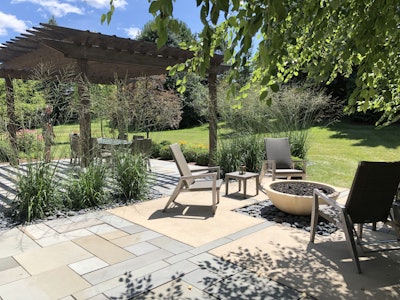 Photo: Jill Odom/Total Landscape Care
Photo: Jill Odom/Total Landscape CareScott Ziebol, president of LandCrafters based in New Berlin, Wisconsin, says he’s seen customers’ desire for low prices has been replaced with a demand to provide high levels of quality, service and value. He says response speed is also highly valued.
As gardening grows in popularity and there are those who prefer to do projects themselves, Jim Drzewiecki, principal of Ginkgo Leaf Studio based in Cedarburg, Wisconsin, says most people don’t have the time to tackle big projects, so demand for professional landscapers will remain the same.
“We are seeing more people, in general, using landscaping contractors for things other than just simple design work,” says Hugh Morton, co-owner of Sun Valley Landscaping, based in Omaha, Nebraska. “Builders are working with us sooner to understand on-site elevation changes and other hardscape considerations. We are being asked to design during the beginning of the construction phases and not at the end. We are seeing more trends towards structural and hardscape elements than just softscaping.”
Morton adds that while the economy has been strong in 2019, the upcoming election leaves a large political question mark that could cause swings in the economy and labor force.
“Probably our biggest concern or unknown is with the election coming up in 2020,” says Tom Horn, founder of All-n-One Outdoor Solutions based in Jefferson City, Missouri. “Especially on the Democrat side of things, they typically have a little bit more government control type of policies than the current administration.”
Actionable sustainability
Another major trend that landscapers are seeing in the industry is a shift to more sustainable practices, whether it be in response to customer demands or their own desire to be better stewards of the environment.
This is presenting itself in various ways such as requests for organic products, the switch to battery-powered equipment, installing more efficient irrigation spray heads and smart controllers and preserving topsoil.
The Plant Concierge, based in Dallas, Texas, is already an all-organic company and president Thomas Fancher says they have more and more customers who are looking to ensure their lawns are safe for their kids and pets.
“Customers today are looking for value and protecting their investment,” Fancher says. “Our industry will continue to educate our customers and communities that this is a worthy investment.”
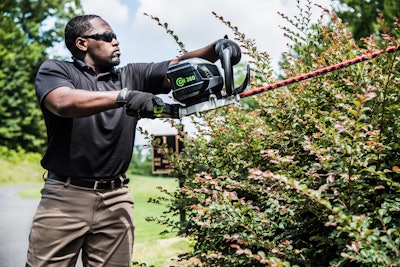 Photo: Greenworks
Photo: GreenworksSun Valley says there have been more requests for organics, but people are still more concerned about having a weed-free yard.
“We do not currently have enough client feedback to look at changing our processes here at Sun Valley other than proper safety and application training,” Morton says.
As for battery-powered equipment, Ziebol says it is becoming more common as it becomes cheaper and easier to use.
“Clients love us utilizing battery-powered tools and the capability improvements of battery-powered tools now makes them a more viable alternative to most two-cycle equipment,” Davoli says.
Morton says that Sun Valley is hesitant of switching to battery-powered equipment, as they do not know how the used batteries will be recycled or if it is really providing energy conscious savings. However, he does acknowledge it will increase manpower efficiency and create more profit.
“If you are not on this wave, you will be left behind in both new customers and profits,” Morton says.
Horn says one of his focuses this year is for his company to do a better job informing and educating customers on ways they can reduce water waste by using weather-based controllers and replacing conventional spray heads for more efficient ones.
According to The United Nations Food & Agricultural Organization, over 90 percent of the Earth’s soils could become degraded by 2050, so regenerative practices are another sustainable action landscapers can take to preserve topsoil.
“We should do a better job amending our current soils with composts that are sustainable,” Fancher says. “Using amendments such as expanded shale to break up the compaction of the clay, unlocking vital nutrients for plants. The best thing we could do overall is to choose plants that are native to our local regions and push sustainable design.”
Morton adds that at Sun Valley, they make sure they are composting all of their reusable products.
“We cannot dump soil and leaves when we can compost and deliver them back to our clients’ yards,” Morton says. “When we install a new landscape, especially if it is in a new construction area, it is important that we loosen the soil, till in compost and promote spaces where insects can flourish. We are in charge of the next generations.”
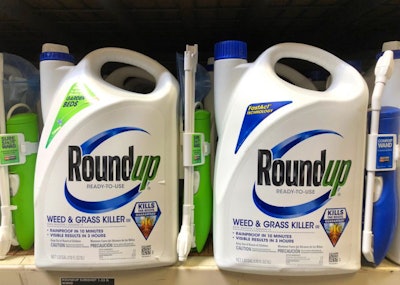
Davoli says The Greenery anticipates glyphosate will be phased out due to litigations, and they have already started testing several alternative products.
“I do see glyphosate being banned or certainly states putting more regulations on its use,” Fancher says. “We already have customers that do not want any weed killers to be used on their properties. This is something I think we should all be getting ahead of and looking at the alternatives.”
Ziebol believes glyphosate will only get banned if “the media disinformation campaign and the law firms mining for new settlement revenue streams prevails over the truth. The loudest voices will win.”
Check back tomorrow for part two, where we’ll share our landscape design trend predictions for 2020.

